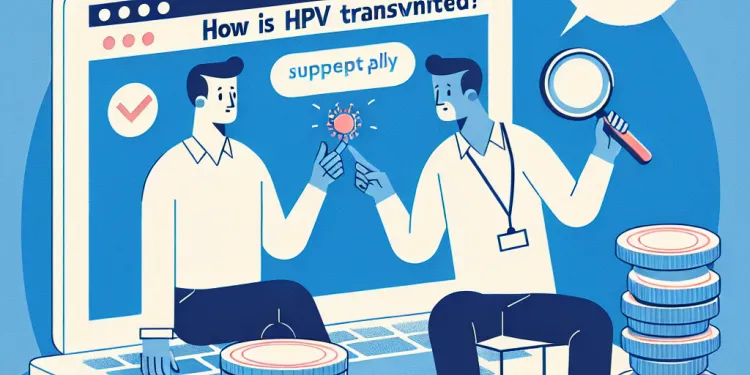
Find Help
More Items From Ergsy search
-
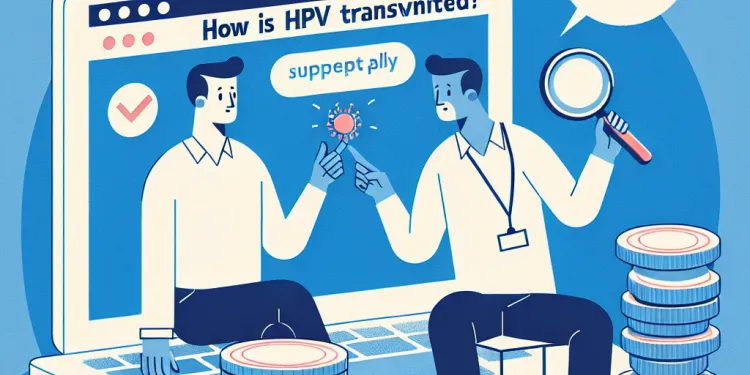
How is HPV transmitted?
Relevance: 100%
-

How common is HPV?
Relevance: 88%
-

Can HPV go away on its own?
Relevance: 85%
-

Do men need the HPV vaccine?
Relevance: 84%
-
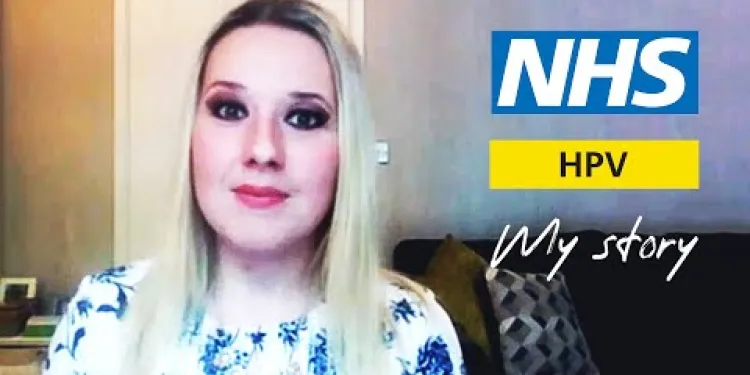
HPV - My Story | NHS
Relevance: 82%
-
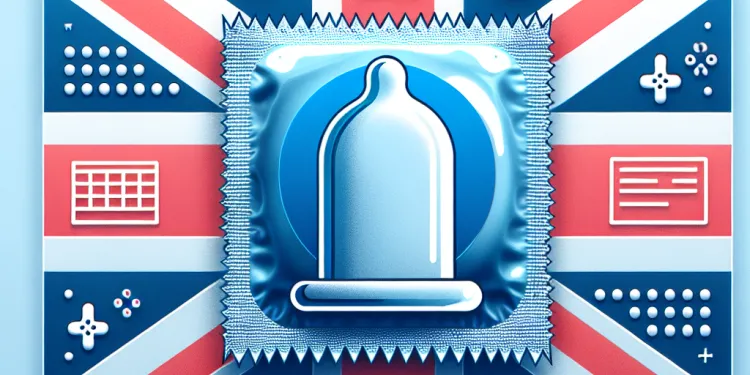
Can using condoms fully protect against HPV?
Relevance: 82%
-

Can HPV be treated?
Relevance: 81%
-

How can HPV be prevented?
Relevance: 80%
-

Is HPV testing available?
Relevance: 79%
-
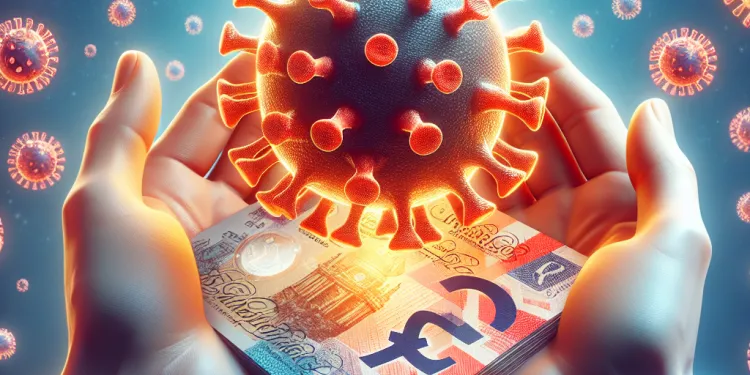
Can HPV lead to cancer?
Relevance: 79%
-

What is the HPV Virus?
Relevance: 78%
-

Are there symptoms of an HPV infection?
Relevance: 78%
-

What health problems can HPV cause?
Relevance: 77%
-

What age group is most at risk for HPV?
Relevance: 76%
-

Can HPV affect both men and women?
Relevance: 74%
-

What is the year 8 HPV vaccine? | NHS
Relevance: 73%
-
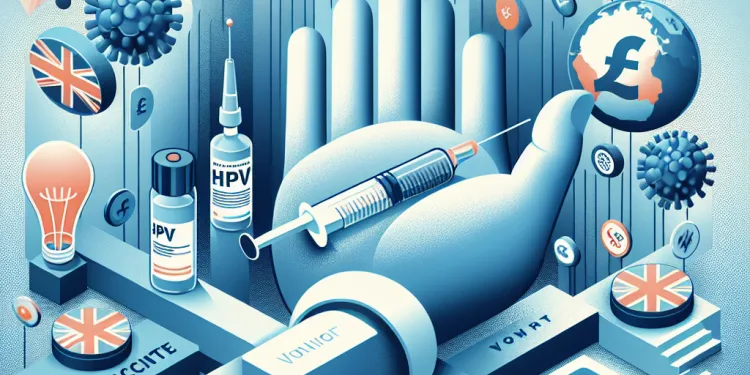
Who should get the HPV vaccine?
Relevance: 72%
-
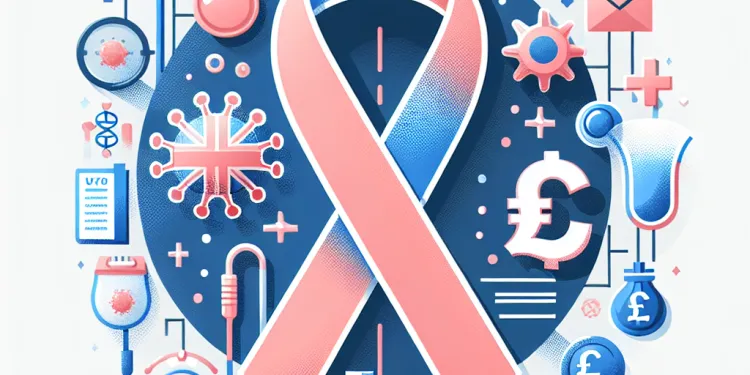
What is the link between HPV and cervical cancer?
Relevance: 70%
-

Are new variants more transmissible?
Relevance: 68%
-

Surge in HPV Vaccination Rates Among Young Women in the UK
Relevance: 67%
-
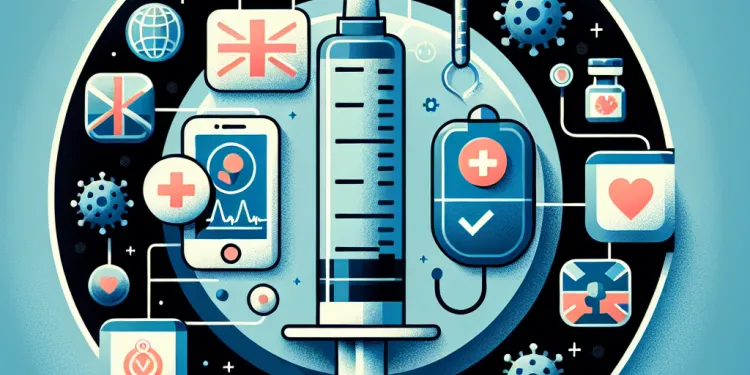
Is there a vaccine for HPV?
Relevance: 61%
-

What role do fruit bats play in Nipah Virus transmission?
Relevance: 55%
-

How many types of HPV are there?
Relevance: 55%
-

How is blood screened to prevent disease transmission?
Relevance: 54%
-
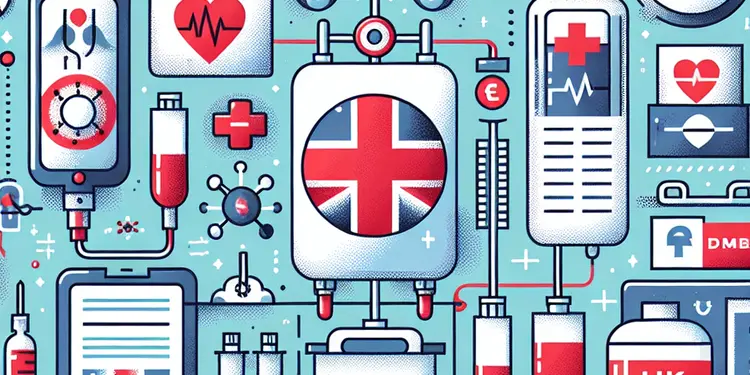
What measures are taken to prevent disease transmission in blood transfusions?
Relevance: 52%
-
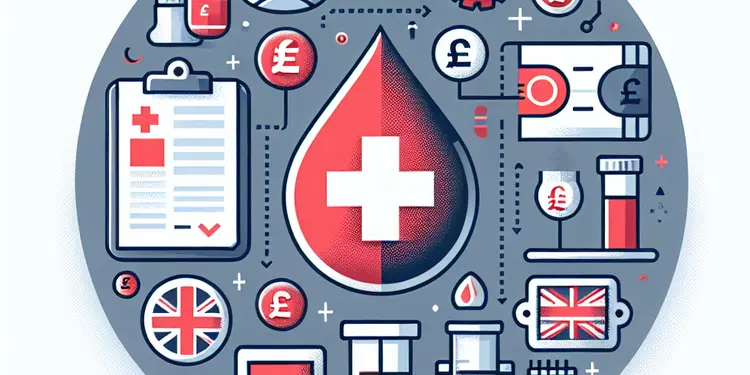
Why is blood donation history important in preventing disease transmission?
Relevance: 45%
-

Understanding Your Sexual Health - Genital Warts
Relevance: 42%
-

Can HPV cause infertility?
Relevance: 34%
-
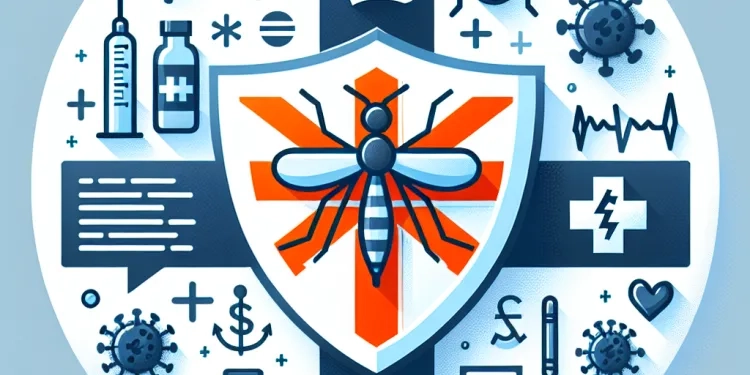
What measures are in place to prevent Zika virus transmission in the UK?
Relevance: 34%
-

Cervical screening (smear test) – what’s it all about?
Relevance: 29%
-

Can HPV be spread through non-sexual contact?
Relevance: 29%
-
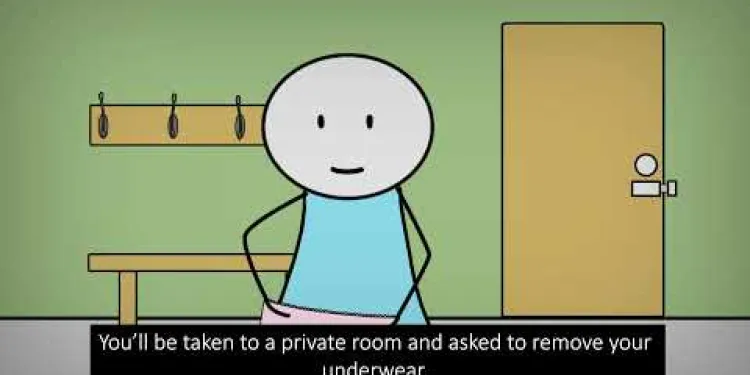
NHSGGC - Cervical Cancer Screening - English
Relevance: 29%
-

Mouth Cancer Infomercial
Relevance: 29%
-

Vaginal Cancer
Relevance: 29%
-
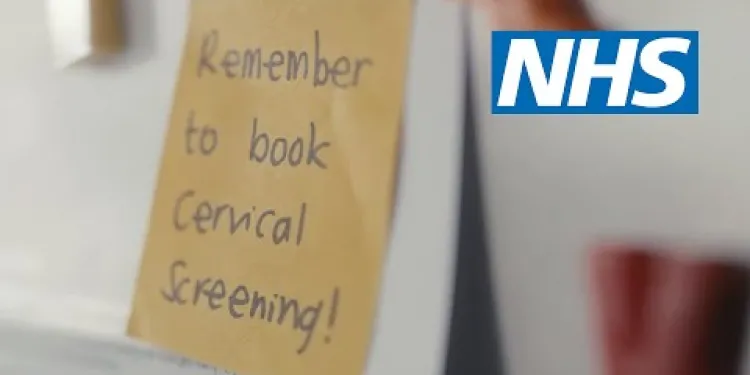
Don’t ignore your cervical screening invite | NHS
Relevance: 28%
-

Sexually transmitted infections STIs
Relevance: 28%
-

Head and Neck Cancer Diagnosis
Relevance: 25%
-

Cervical screening: Q&A | NHS
Relevance: 25%
-

How is Nipah Virus transmitted?
Relevance: 25%
-
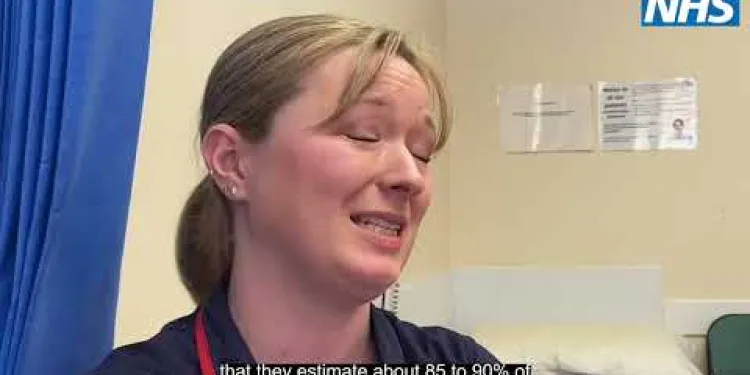
What is cervical screening (smear test)?
Relevance: 25%
Understanding HPV Transmission
Human Papillomavirus (HPV) is a common virus with over 100 types, some of which can lead to health problems including genital warts and various cancers. Understanding how HPV is transmitted is crucial in taking preventive measures, and this guide aims to clarify the modes of transmission relevant to a UK audience.
Transmission Through Sexual Contact
HPV is predominantly transmitted through intimate skin-to-skin contact during sexual activity. This includes vaginal, anal, and oral sex. It is important to note that HPV can be spread even when an infected person shows no signs or symptoms. Most sexually active individuals will acquire at least one type of HPV at some point in their lives, making safe sex practices essential.
Non-Sexual Transmission
In rare instances, HPV can be transmitted through non-sexual means. This could occur through close skin-to-skin contact or potentially from infected surfaces. However, these are not common modes of transmission, and the primary method remains through sexual activity.
Mother-to-Child Transmission
HPV can be transmitted from a pregnant mother to her baby during childbirth, although this is relatively uncommon. When transmission occurs, it might result in respiratory papillomatosis in the child, a condition where warts grow in the respiratory tract.
Use of Barrier Protection
While the use of barrier methods such as condoms can lower the risk of HPV transmission, they do not provide full protection, as HPV can infect areas not covered by a condom. Nevertheless, consistent and correct use of condoms is advised to reduce the risk of infection significantly.
HPV Vaccination
The HPV vaccine is widely available in the UK and significantly reduces the risk of acquiring certain high-risk types of the virus. The vaccine is offered to girls and boys aged 12 to 13 as part of the NHS vaccination programme, ensuring protection before individuals become sexually active.
Regular Screening and Prevention
In addition to vaccination, regular cervical screening is crucial for women. The NHS provides a cervical screening programme for women aged 25 to 64 to detect and treat abnormal cells that could lead to cervical cancer. This preventive measure is vital in reducing the risk associated with long-term HPV infection.
Conclusion
Addressing HPV transmission effectively requires a combination of vaccination, safe sex practices, and regular health screenings. Awareness and education play a pivotal role in prevention, and individuals are encouraged to seek more information and support through healthcare providers to mitigate the risks associated with HPV.
Understanding How HPV Spreads
HPV is a very common virus. There are more than 100 types of HPV. Some types can cause health problems. These problems include genital warts and some cancers. Knowing how HPV spreads can help people stay safe. This guide will explain how HPV spreads, especially for people in the UK.
Spreading Through Sexual Activity
HPV spreads mostly through close skin contact during sex. This includes vaginal, anal, and oral sex. HPV can spread even if the infected person has no signs or symptoms. Most people who have sex will get HPV at some point. This is why safe sex is important.
Spreading Without Sex
HPV can sometimes spread without sex, but this is very rare. It might happen through close skin contact or touching infected surfaces. But, mostly HPV spreads through sex.
Spreading from Mother to Baby
HPV can spread from a pregnant mother to her baby during birth. This is not common. If it happens, the baby might get a condition where warts grow in the throat.
Using Condoms
Using condoms can lower the chance of getting HPV. But condoms do not cover all areas, so they don't give full protection. Still, using condoms correctly can really help reduce risk.
HPV Vaccine
The HPV vaccine helps stop certain bad types of the virus. In the UK, girls and boys aged 12 to 13 get this vaccine. The vaccine works best when given before people start having sex.
Regular Health Checks
Besides getting vaccinated, women need regular cervical checks. The NHS gives cervical checks to women aged 25 to 64. These checks find and treat changes that could lead to cancer. It is very important to get these checks regularly.
Conclusion
To stop HPV from spreading, people should get the vaccine, practice safe sex, and get regular health checks. Learning about HPV and talking to doctors can help people stay healthy and safe. Seek more information and support from healthcare professionals to understand and lower the risks of HPV.
Frequently Asked Questions
What is HPV?
HPV stands for human papillomavirus, a common sexually transmitted infection with more than 100 different types.
How is HPV transmitted?
HPV is transmitted primarily through direct skin-to-skin contact during vaginal, anal, or oral sex with someone who has the virus.
Can you get HPV from kissing?
HPV is not typically transmitted through casual kissing, but it can be spread through deep or open-mouthed kissing if an infected area is involved.
Is HPV only transmitted sexually?
While HPV is most commonly spread through sexual contact, it can also be transmitted through non-sexual routes like from a mother to her baby during childbirth.
Can HPV be spread through oral sex?
Yes, HPV can be spread through oral sex, potentially leading to infections in the mouth and throat.
Is using a condom effective in preventing HPV transmission?
Condoms can lower the risk of HPV transmission but do not fully protect against it since HPV can infect areas not covered by a condom.
Can HPV be spread through genital touching or non-penetrative sex?
Yes, HPV can be transmitted through genital touching and skin-to-skin contact even if no penetration occurs.
Can you get HPV from sharing personal items like towels or underwear?
HPV is not spread through casual contact or sharing personal items like towels or underwear.
Does HPV always cause symptoms?
HPV often does not cause any symptoms, which can make it easy to transmit unknowingly.
Can HPV be transmitted even if there are no visible warts?
Yes, HPV can be transmitted even when the infected person has no visible symptoms or warts.
Is it possible to get HPV from a toilet seat?
HPV is not typically transmitted through contact with toilet seats.
Can you be infected with more than one type of HPV?
Yes, it's possible to be infected with multiple types of HPV at the same time.
Is HPV contagious during the incubation period?
Yes, HPV can be spread during the incubation period, before any warts or symptoms appear.
How long does it take to develop symptoms after contracting HPV?
HPV symptoms, such as warts, can appear weeks, months, or even years after exposure to the virus.
Do all sexually active people get HPV?
Most sexually active people will contract HPV at some point in their lives, but not everyone will develop health problems from it.
Does having HPV mean I will develop cancer?
While certain high-risk types of HPV can lead to cancer, not all HPV infections cause cancer.
Can oral HPV lead to throat cancer?
Yes, some high-risk types of oral HPV can increase the risk of throat cancer.
How can HPV transmission be prevented?
HPV transmission can be reduced through vaccination, using condoms, and limiting the number of sexual partners.
Is there a test to determine if you have HPV?
There are HPV tests available for women, usually done with a Pap smear, but there are no standard tests for men.
Can the HPV vaccine prevent all types of HPV?
The HPV vaccine protects against the most common high-risk and wart-causing types, but it does not cover all HPV types.
What is HPV?
HPV is a short way to say Human Papillomavirus. It is a very common virus. Most people get it at some point. It can cause warts or lumps on your skin.
Here are some tools and tips to help you:
- Ask someone you trust to explain more if you need help.
- Look at pictures of HPV online or in books.
- Use apps or websites with simple words to learn more.
HPV is short for human papillomavirus. It is a virus that many people can get from sex. There are more than 100 types of this virus.
How does HPV spread?
HPV can spread by touching. It goes from one person to another when their skin touches. This can happen when people kiss or when their skin is close to each other. It can also spread during hugging. Using a condom can help keep people safe. You can talk to a doctor to learn more about staying safe. They can explain how to protect yourself.
HPV passes from one person to another when their skin touches during sex. This can happen during vaginal, anal, or oral sex if one person has the virus.
Can you get HPV from kissing?
HPV is a virus that can make people sick. Some people wonder if kissing can spread it. It is not common to get HPV from kissing.
To stay safe, talk to a doctor. Use the internet to find more information or watch videos that explain it. Always ask questions if you don't understand.
HPV usually does not spread when people just kiss each other quickly. But, it can spread if people kiss with open mouths or very deeply, and one of them is infected.
Can you only get HPV from sex?
HPV can spread through sex, but it can also spread in other ways. A mom can give it to her baby when the baby is born.
Can HPV spread through oral sex?
HPV is a virus. You can catch it from oral sex. Oral sex means using your mouth on someone else's private parts.
If you want to know more, talk to a doctor. They know lots about staying healthy.
Yes, you can catch HPV from oral sex. This can cause infections in your mouth and throat.
Do condoms help stop HPV from spreading?
Condoms can help stop the spread of HPV, but they don't stop it completely. HPV can still get to places not covered by a condom.
Can HPV spread by touching private parts or having close body contact?
HPV can spread when people touch each other's private parts. It can also happen if people have close body contact without having sex.
If you have questions, talk to a doctor or nurse. They can help you understand more about HPV.
Yes, you can get HPV from touching or rubbing skin near your private parts, even if you don’t have sex.
Can you catch HPV from using someone else's things like towels or underwear?
HPV is a virus that can spread between people.
You usually catch it from close skin contact, not from sharing towels or underwear.
It is important to use your own things to stay healthy.
If you have questions, ask a grown-up or a doctor.
HPV does not spread by touching or using things like towels or underwear that someone else has used.
Do you always feel sick with HPV?
HPV is a virus that can be in your body.
Sometimes, it does not make you feel sick.
Most people do not know they have it because they feel fine.
It is still good to see a doctor to check your health.
To help understand more, you can ask a family member or use picture books.
HPV usually doesn't show any signs, so people can share it without knowing.
Can you get HPV even if you can't see any warts?
Yes, you can still get HPV. You don’t need to see warts for it to spread.
HPV is a virus. It can pass from one person to another.
Use these tips to stay safe:
- Ask your doctor for advice.
- Learn about HPV vaccines.
- Talk openly with your partner.
Yes, you can catch HPV even if the person who has it does not have any signs or warts that you can see.
Can you get HPV from a toilet seat?
You usually can't get HPV from touching toilet seats.
Can you have more than one kind of HPV?
Yes, you can get more than one kind of HPV at the same time.
Can you catch HPV before you see any signs?
HPV is a virus that spreads easily. You might be able to catch it even before any signs show up. It is a good idea to be careful and use protection, like condoms, to stay safe.
Yes, you can catch HPV even before warts or other signs show up.
How long until you feel sick after getting HPV?
HPV can cause warts. These warts might show up weeks, months, or even years after you first catch the virus.
Do all people who have sex get HPV?
No, not everyone who has sex gets HPV. But many people do.
HPV is a common germ that can spread during sex. You might not know you have it.
To stay safe, you can:
- Use condoms when you have sex.
- Talk to your doctor about the HPV vaccine.
- Get regular check-ups.
It's important to take care of your health. You can ask a doctor or nurse if you have questions.
Almost everyone who is having sex will get HPV at some time. But, not everyone will get sick from it.
Will HPV give me cancer?
Having HPV does not mean you will get cancer. Most people with HPV do not get cancer.
Some types of HPV can cause cancer, but this is rare. Your body can fight HPV on its own.
Talk to a doctor or nurse if you are worried. They can help you. Getting regular health check-ups and vaccines can help protect you.
Using simple words can help you understand better. You can ask someone you trust to read with you.
Some types of HPV can lead to cancer, but not all HPV infections cause cancer.
Can HPV in the mouth cause throat cancer?
Yes, some types of HPV that are high-risk can make it more likely to get throat cancer.
How can you stop HPV from spreading?
You can stop HPV from spreading by:
- Getting the HPV vaccine to protect yourself.
- Using condoms when you have sex.
- Having fewer sexual partners.
- Getting regular check-ups with your doctor.
Talking to someone you trust, like a doctor or nurse, can help you learn more. They can answer your questions and give you more tips.
You can catch HPV less often if you do a few things. First, get a vaccine shot—it helps protect you. Second, use condoms during sex. Third, try to have fewer people you have sex with.
Can you find out if you have HPV?
You can find out if you have HPV by having a test. This is a special check done by a doctor or nurse.
Here is how it works:
- The doctor or nurse will take a small sample from your body. This may be from your mouth or private parts.
- They will test the sample to see if you have HPV.
If you find reading hard, you can ask someone you trust to help you understand, like a family member or a friend.
Remember, it's okay to ask the doctor or nurse to explain things in a way that is easy to understand.
Doctors can test women for HPV. They usually do this test when checking for changes in the cervix, called a Pap smear. For men, there is no regular test for HPV.
Does the HPV vaccine stop all kinds of HPV?
The HPV vaccine helps protect you from the most common types of HPV that can cause warts and other problems. But it doesn't protect you from all types of HPV.
Useful Links
Have you found an error, or do you have a link or some information you would like to share? Please let us know using the form below.
-->
This website offers general information and is not a substitute for professional advice.
Always seek guidance from qualified professionals.
If you have any medical concerns or need urgent help, contact a healthcare professional or emergency services immediately.
Some of this content was generated with AI assistance. We’ve done our best to keep it accurate, helpful, and human-friendly.
- Ergsy carfully checks the information in the videos we provide here.
- Videos shown by Youtube after a video has completed, have NOT been reviewed by ERGSY.
- To view, click the arrow in centre of video.
- Most of the videos you find here will have subtitles and/or closed captions available.
- You may need to turn these on, and choose your preferred language.
- Go to the video you'd like to watch.
- If closed captions (CC) are available, settings will be visible on the bottom right of the video player.
- To turn on Captions, click settings .
- To turn off Captions, click settings again.
More Items From Ergsy search
-

How is HPV transmitted?
Relevance: 100%
-

How common is HPV?
Relevance: 88%
-

Can HPV go away on its own?
Relevance: 85%
-

Do men need the HPV vaccine?
Relevance: 84%
-

HPV - My Story | NHS
Relevance: 82%
-

Can using condoms fully protect against HPV?
Relevance: 82%
-

Can HPV be treated?
Relevance: 81%
-

How can HPV be prevented?
Relevance: 80%
-

Is HPV testing available?
Relevance: 79%
-

Can HPV lead to cancer?
Relevance: 79%
-

What is the HPV Virus?
Relevance: 78%
-

Are there symptoms of an HPV infection?
Relevance: 78%
-

What health problems can HPV cause?
Relevance: 77%
-

What age group is most at risk for HPV?
Relevance: 76%
-

Can HPV affect both men and women?
Relevance: 74%
-

What is the year 8 HPV vaccine? | NHS
Relevance: 73%
-

Who should get the HPV vaccine?
Relevance: 72%
-

What is the link between HPV and cervical cancer?
Relevance: 70%
-

Are new variants more transmissible?
Relevance: 68%
-

Surge in HPV Vaccination Rates Among Young Women in the UK
Relevance: 67%
-

Is there a vaccine for HPV?
Relevance: 61%
-

What role do fruit bats play in Nipah Virus transmission?
Relevance: 55%
-

How many types of HPV are there?
Relevance: 55%
-

How is blood screened to prevent disease transmission?
Relevance: 54%
-

What measures are taken to prevent disease transmission in blood transfusions?
Relevance: 52%
-

Why is blood donation history important in preventing disease transmission?
Relevance: 45%
-

Understanding Your Sexual Health - Genital Warts
Relevance: 42%
-

Can HPV cause infertility?
Relevance: 34%
-

What measures are in place to prevent Zika virus transmission in the UK?
Relevance: 34%
-

Cervical screening (smear test) – what’s it all about?
Relevance: 29%
-

Can HPV be spread through non-sexual contact?
Relevance: 29%
-

NHSGGC - Cervical Cancer Screening - English
Relevance: 29%
-

Mouth Cancer Infomercial
Relevance: 29%
-

Vaginal Cancer
Relevance: 29%
-

Don’t ignore your cervical screening invite | NHS
Relevance: 28%
-

Sexually transmitted infections STIs
Relevance: 28%
-

Head and Neck Cancer Diagnosis
Relevance: 25%
-

Cervical screening: Q&A | NHS
Relevance: 25%
-

How is Nipah Virus transmitted?
Relevance: 25%
-

What is cervical screening (smear test)?
Relevance: 25%


